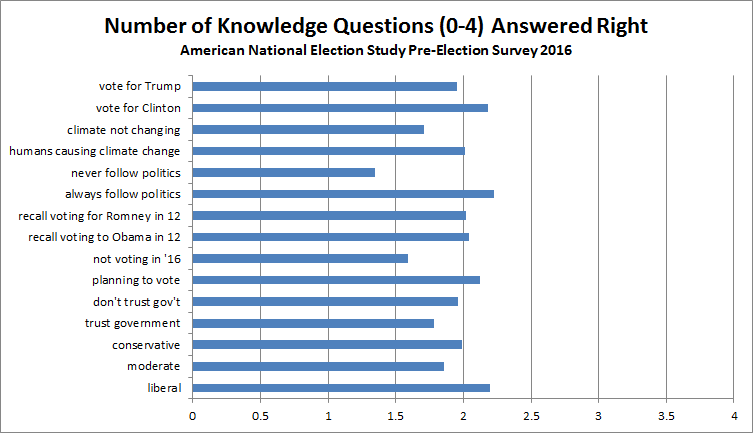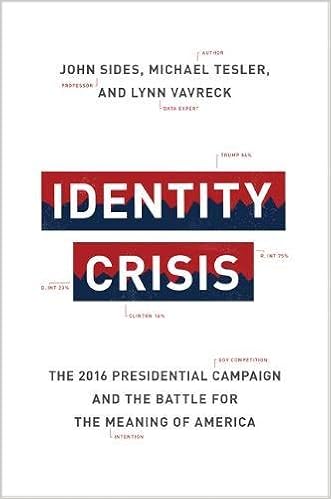- Facebook616
- Total 616
This web search takes you to a whole stack of good recent writing about the Democratic Party as the technocratic party, with headlines ranging from Twilight of the Technocrats? to The Triumph of the Technocrats. In lieu of a critical review, I’d pose these questions:
- What would a technocrat support and do in our context? It’s possible to be a socialist technocrat or a technocrat who works for a huge, for-profit company. I presume that a technocratic Democrat today is someone who believes in optimizing GDP growth, environmental sustainability, and reductions in tangible human distress (e.g., disease, homicide) through efficient governmental policies. These desired outcomes often conflict, and then technocrats are fine with compromise. To qualify as a technocrat, you can’t be too enthusiastic about working with ordinary citizens on public issues, and you can’t base your agenda on controversial, challenging moral ideals.
- Do Democrats present themselves as technocrats, in this sense? Some do and some don’t. It seems fair to read the positive agenda of Hillary Clinton’s 2016 campaign as largely technocratic (she promised to govern competently and continue the balanced progress of her predecessor), although her critique of Donald Trump was ethical rather than technical. I also think that Clinton was in a tough spot because she didn’t believe that she could accomplish transformative change with a Republican Congress; thus managerial competence seemed a workable alternative. The 2016 campaign does not demonstrate that she–let alone all Democrats–are fully technocratic. However, consider a different case that is pretty revealing: the Josiah Bartlet Administration. This is an informative example just because it is idealized and fictional, free of any necessary constraints. The Bartlet White House is staffed with hard-working, highly-educated, unrealistically competent, smartest-guy-in-the-room, ethical people who strive to balance the budget while making incremental progress on social issues. Hollywood’s idealized Democrats are technocrats in full.
- Do Democrats choose technocratic policies? Again, I’d say “sometimes.” Both the Clinton and Obama Administrations definitely showed some predilection for measurable, testable outcomes; for behavioral economics; and for models that were consistent with academic research about the economy and the climate. They weren’t particularly good at empowering citizens to govern themselves or collaborating with social movements. On the other hand, the Affordable Care Act has a moral core (aiming to cover people without health insurance), even if many of its tools and strategies are best defined as technocratic.
- Are Democrats good technocrats? There has been more economic growth under Democratic than Republican presidents. But the sample is small, several Democratic presidents faced conservative congresses, and any correlation with a small “n” can easily be spurious. A deeper point is that Democrats are currently more committed to the mainstream findings of climate science, social policy research, and academic economics than Republicans are. Their accomplishments may be affected by sheer chance, but their strategies tend to be consistent with positivist, empirical research.
- Is Democratic technocracy consistent with justice? No. Almost any theory of justice, from libertarian to strongly egalitarian, would demand fundamental shifts from the status quo. Certainly, I would favor deeper changes in our basic social contract. On the other hand, compared to what? Managing our existing social policies in a competent way delivers substantial, if inadequate, justice. It beats incompetence or deliberate assaults on existing social institutions. In a multi-party parliamentary democracy, a center-left technocratic party would play an important role. I would be open to voting for it, depending on the circumstances and the alternatives. In our two-party system, a technocratic and centrist component competes for control of the Democratic Party. It shouldn’t be surprising that this component receives constant criticism from within the Party, because the Democrats represent a broader coalition, and there is plenty of room to the left of someone like Hillary Clinton. Whatever you think of her, I don’t think you can complain that she was criticized from her left.
- Is Democratic technocracy good politics? That’s not a question that will be settled to everyone’s satisfaction any time soon. Clinton lost to Trump but also won the popular vote. She was technocratic but not completely so. She faced many contingencies, from Fox News to Bernie to Comey, and handled them in ways that we can debate for the next decade. Again, the answer has to be: Compared to what? A compelling new vision of America’s social contract would beat competent management at the polls. But competent management may beat incompetence or a deeply unpopular vision (from either right or left).
- What’s driving the Democratic Party’s drift to technocracy? One could explain it in class terms: the Democratic coalition is now highly educated, including many people who make a living by demonstrating expertise. But I would propose a deeper thesis. Modernity itself is defined by constant increases in specialization and differentiation, plus radical doubts about our ability to know which ends are moral or just. In that context, people prosper who are good at applying technical reasoning to complex problems without worrying too much about whether the ultimate ends are right. Modernity has generated a white-collar governing class that is currently aligned with the Democrats, but more than that, it has generated a very high estimation of expertise combined with a leeriness about moral discourse. Religious conservatives monopolize the opposition to both of these trends. Getting out of this trap requires more than new messages and policies. It is a fundamental cultural problem.
See also: the rise of an expert class and its implications for democracy; varieties of neoliberalism; the big lessons of Obamacare; the new manipulative politics: behavioral economics, microtargeting, and the choice confronting Organizing for Action; and why the white working class must organize.


